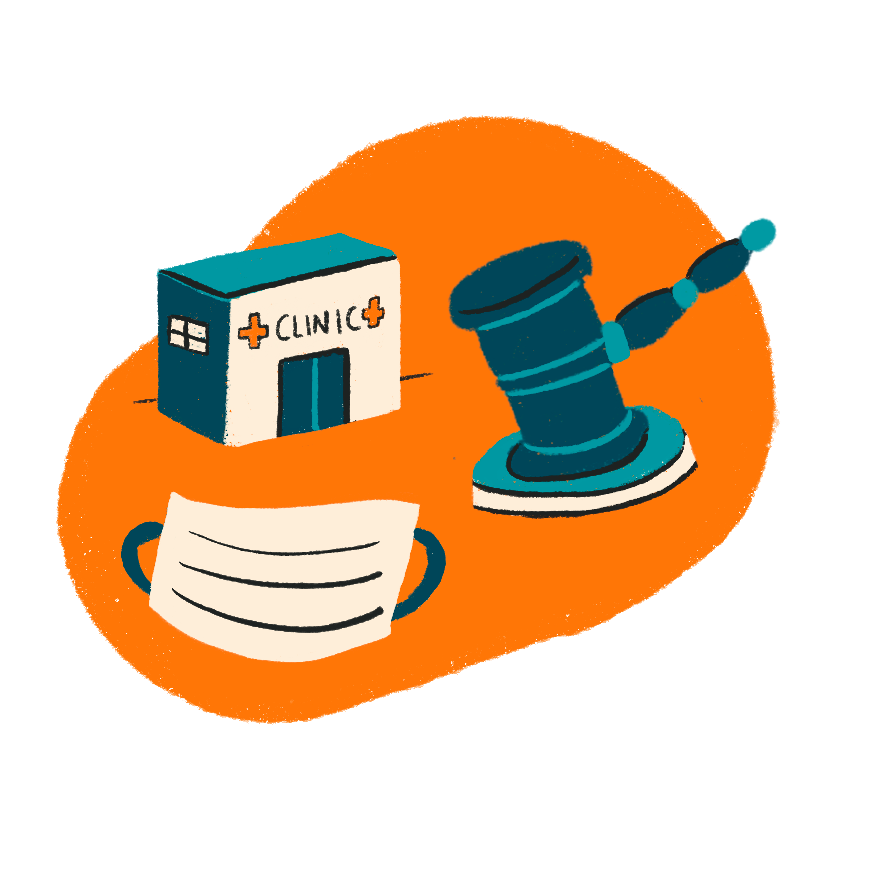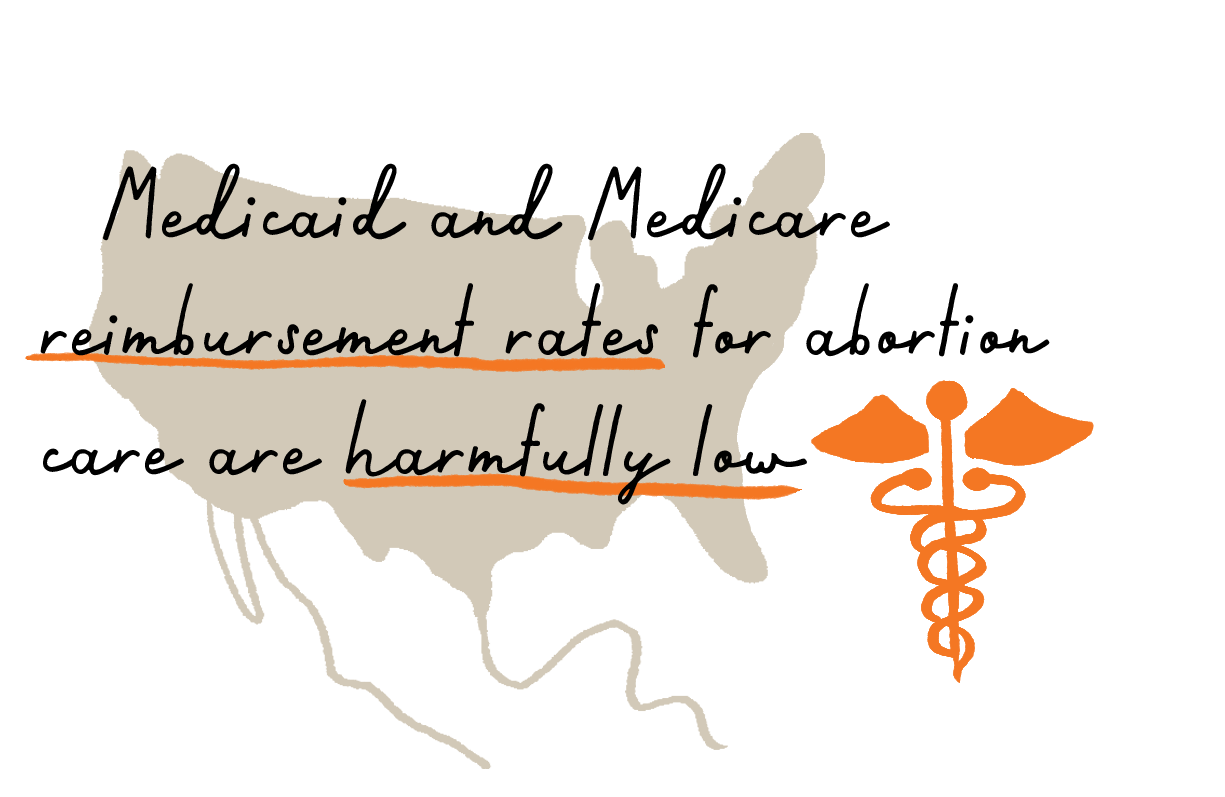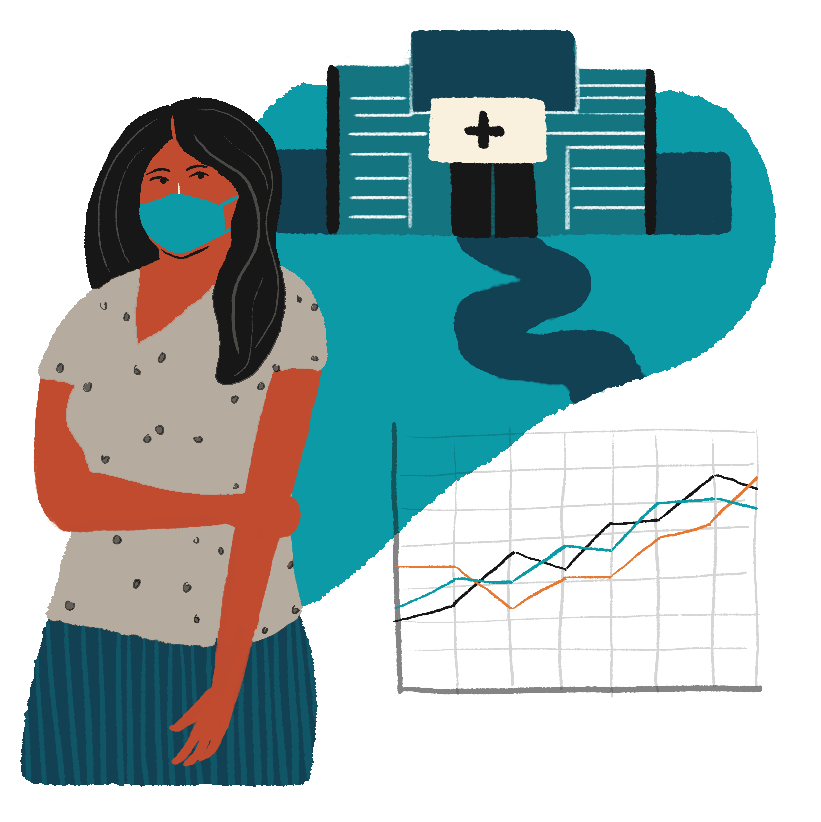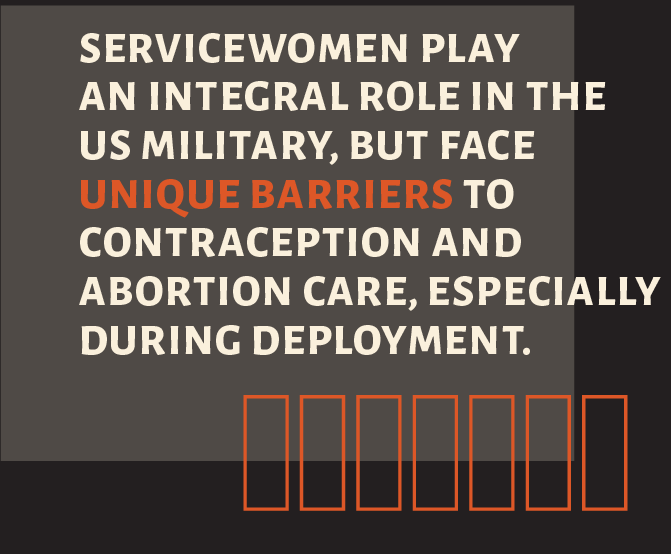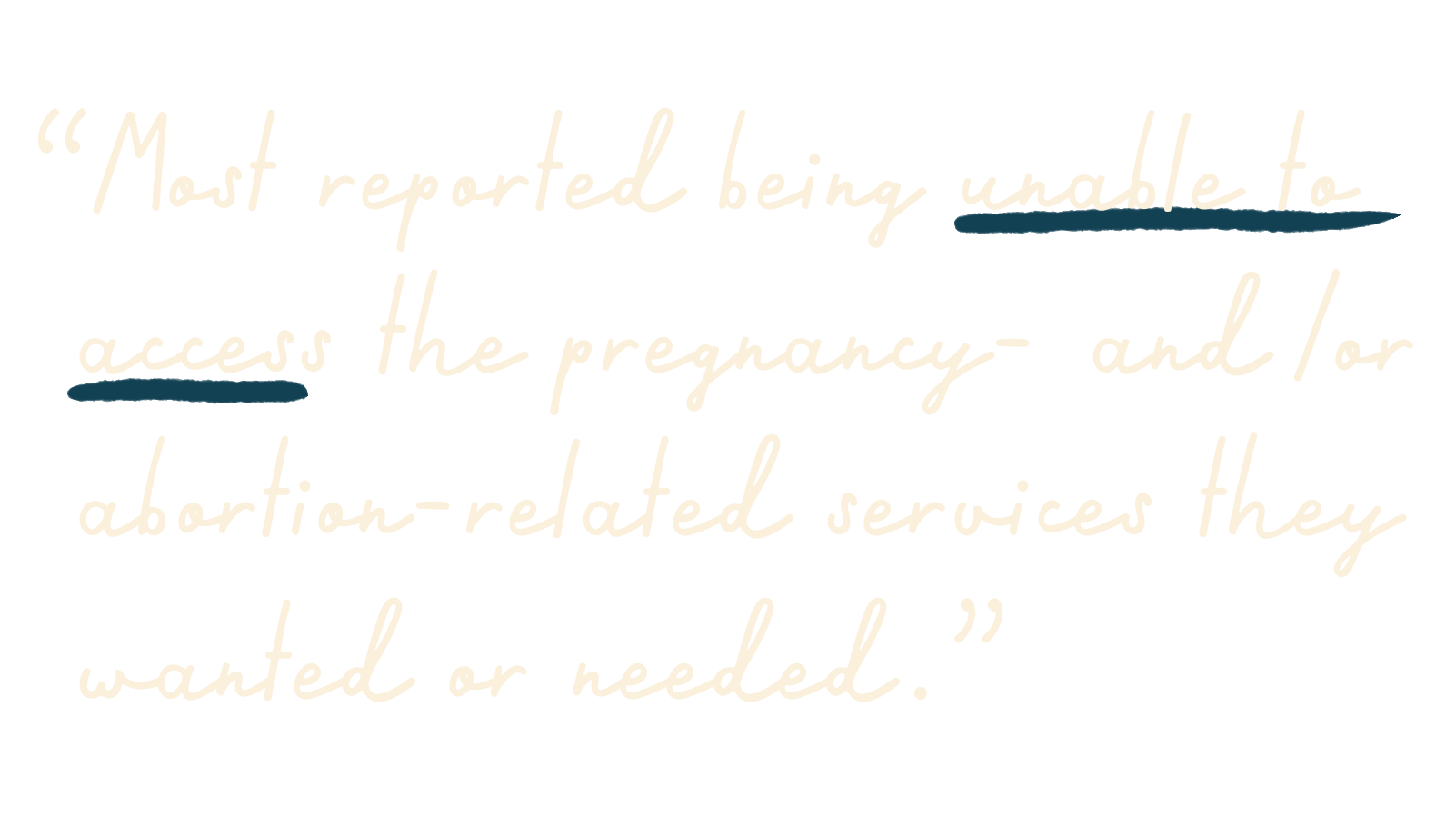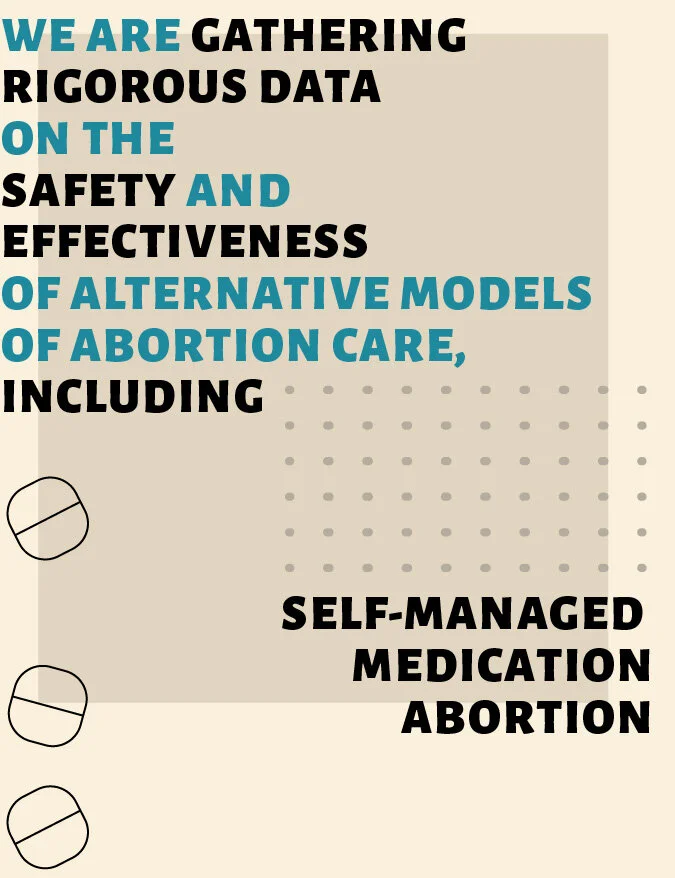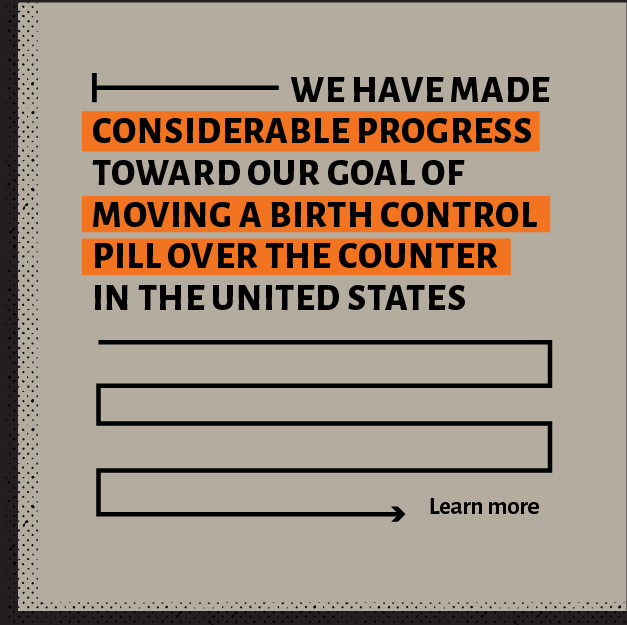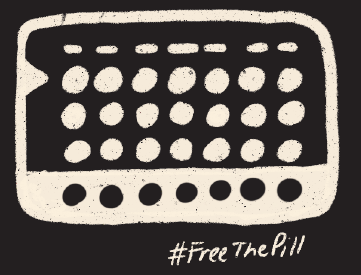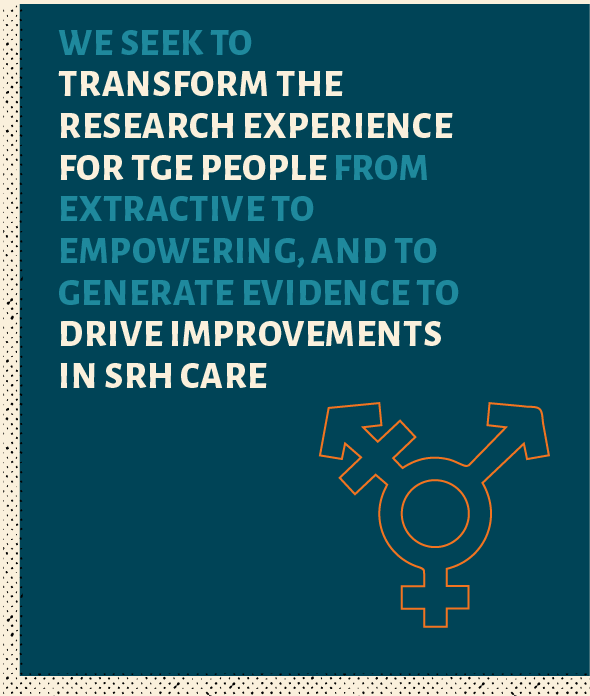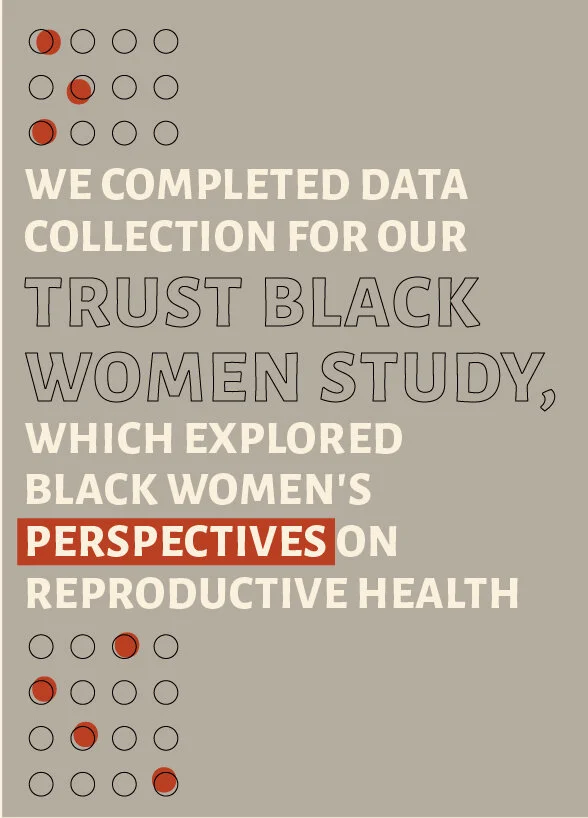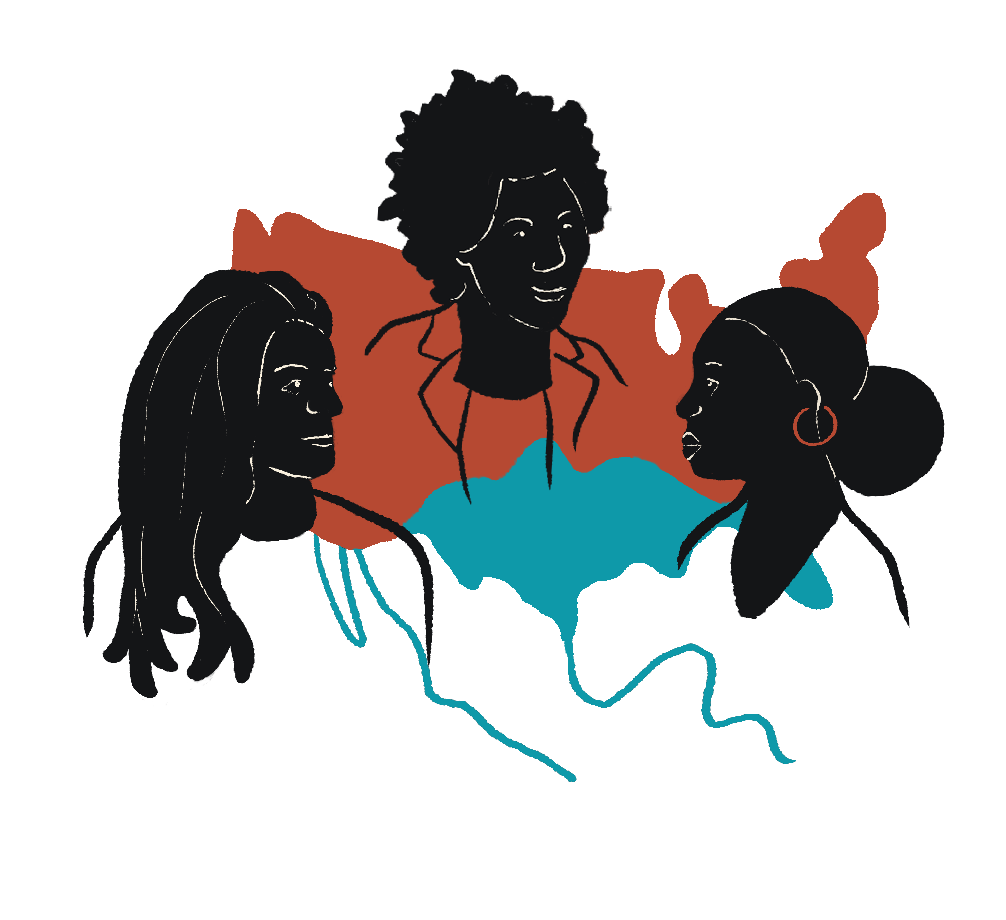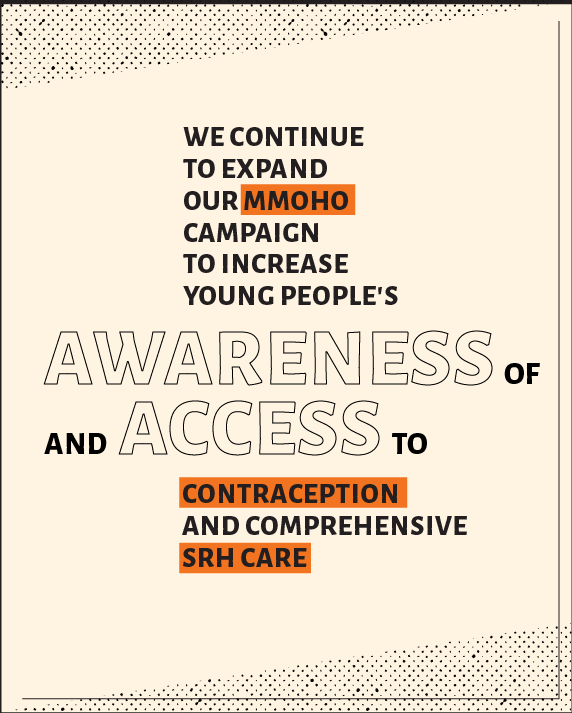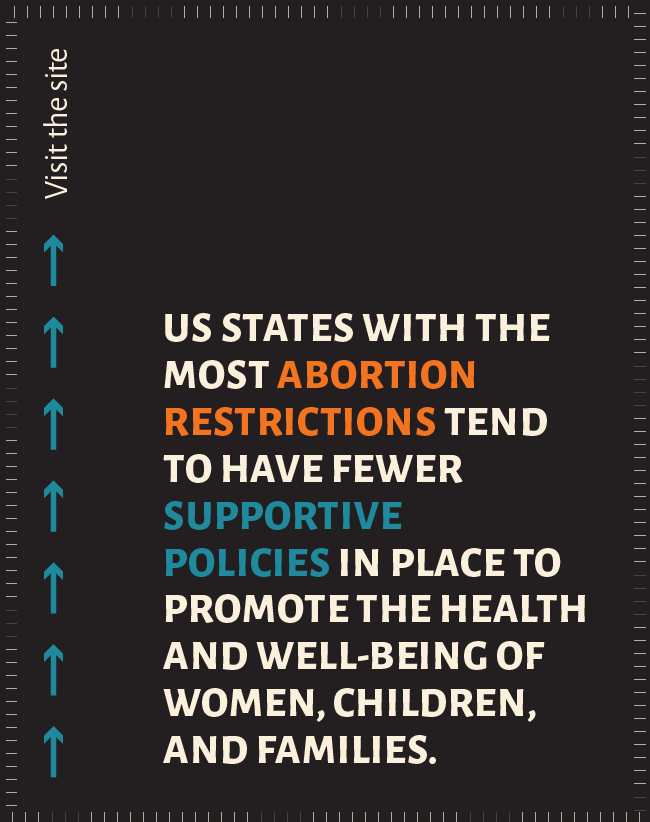Driving change in an unprecedented year
Highlights from Ibis Reproductive Health
The COVID-19 pandemic, the global uprising for racial justice, and political battles around the world underscore the deep structural inequities and injustices that prevent people from exercising their human rights and accessing the care they need. Ibis’s research and partnerships are focused on expanding access to services, information, and care, particularly for those most impacted by the barriers created by systemic racism and reproductive oppression. We are proud to have sustained our work while responding nimbly to shifting circumstances and incorporating assessments to understand the impact of COVID-19. In this moment, our work is more important than ever—and together with our partners we will tackle the challenges before us with boldness, rigor, and thoughtfulness, in pursuit of a future where all people can exercise their human right to sexual and reproductive autonomy, choices, and health. We are grateful to our staff, Board, partners, and supporters for making all of this work possible.
Our strategic focus areas guide our effort toward making this vision a reality.
1 Ensuring all people have the right and ability to access safe, affordable, quality abortion care
In the face of restrictive legal environments, systems of oppression, and the COVID-19 pandemic, we work to ensure all people have the right and ability to access safe, affordable, quality abortion care—which is fundamental to autonomy, health, and the well-being of our communities.
In the United States, we continue our work to ensure affordable access to SRH services for all. This includes addressing the harmfully low rates of Medicaid and Medicare reimbursement for abortion care, highlighting the continued impact of policies that restrict federal insurance coverage, and documenting the catastrophic impact of out-of-pocket costs for abortion care. In a recent study, we showed how devastating the expense can be—for households earning their state’s median monthly income, the out-of-pocket cost for a first-trimester abortion procedure met the criteria for “catastrophic” in 39 states, and the out-of-pocket cost for a second-trimester abortion procedure would be catastrophic in all 50 states.
As the COVID-19 pandemic erodes economic security and eliminates access to care for millions of people around the world, we are working to document what may be even greater challenges to obtaining an abortion later in pregnancy and opportunities for expanding access to care. We authored a commentary that highlights how the pandemic is impacting later abortion clinics and abortion clients, and provides recommendations for ensuring access to later abortion care for growing numbers of people who may need it in the United States. Working with partners in India, we explored how the pandemic is reducing access to abortion, how abortion needs are changing, and what strategies could address the increased need for abortion care.
Servicewomen play an integral role in the US military, but face unique barriers to contraception and abortion care, especially during deployment. Our research among a sample of servicemembers who became pregnant or discovered that they were pregnant while overseas during deployment found that most reported being unable to access the pregnancy- and/or abortion-related services they wanted or needed. The majority reported lack of knowledge of military abortion policies and said servicewomen are reprimanded for pregnancy and/or sexual activity in some or all circumstances. Many noted this reprimand, or fear of reprimand, was a barrier to contraceptive use.
2 Transforming access to abortion and contraception through bold service-delivery and technology innovations
The past year has demonstrated the potential of technology to reshape the way people interact with health care and to connect individuals with the services they need, regardless of location. We aim to identify and evaluate bold solutions to make abortion and contraception information and care easier to obtain—especially for those who have the most to gain from improvements in access.
To ensure everyone can access the care they want and need, we are gathering rigorous data on the safety and effectiveness of alternative models of abortion care, including self-managed medication abortion. Analyses are underway for the SAFE Study, our prospective observational study of the effectiveness and safety of out-of-clinic self-managed medication abortion with accompaniment group support in Argentina, Indonesia, and Nigeria. Initial results show people can self-manage their medication abortion effectively, and highlight the potential role for supported, high-quality, self-managed medication abortion options.
The COVID-19 pandemic has brought telemedicine to the forefront and demonstrated the role it can play in ensuring access to essential SRH services—during the pandemic and beyond. In a recent study, we showed that delivery of medication abortion using telemedicine at home in Australia is convenient to patients and may improve access to medication abortion where distance and travel costs can make it hard to reach care. In the United States, we examined the potential of a telemedicine program that offers family planning services for hard-to-reach populations such as women with opioid use disorder. Ibis is supportive of Marie Stopes South Africa’s launch of remote access to safe abortion services, particularly important during COVID-19. In addition to supporting our provider partners, we continue to engage the South African National Department of Health in exploring ways to expand telemedicine offerings in the country.
In the past year, we have made considerable progress toward our goal of moving a birth control pill over the counter (OTC) in the United States that is affordable, covered by insurance, and available to people of all ages and backgrounds. During a week of digital action leading up to the second-annual Free the Pill Day on May 9, our coalition partners led a vocal #FreeThePill demonstration on social media to highlight the importance of an OTC pill. We also hosted a webinar with California Latinas for Reproductive Justice to acknowledge the hundreds of Puerto Rican women who participated in the clinical trials for what became the first FDA-approved birth control pill, but were not asked for their consent nor compensated.
Fundamental to our approach is our commitment to acknowledging and reckoning with the history of racism and exploitation of people of color and people with disabilities in the birth control movement and in SRH broadly. We are committed to doing our work in ways that ensure communities are authentic partners who lead the work.
Back to top3 Expanding access to comprehensive SRH information and services
SRH information and services should be accessible, affordable, and available in a range of different places and formats, where and when people need them. We support practices that improve health and policies that promote rights to information, services, and products that meet people’s needs and preferences. We center individuals’ lived experiences and share power with communities most affected by our work in order to expand access to SRH information and services, and drive lasting change.
Historically, SRH research and clinical care have excluded the experiences of transgender, nonbinary, and gender-expansive (TGE) individuals, resulting in a lack of SRH evidence, services, and resources that reflect the needs of TGE people. To fill this gap, we are working with a diverse coalition to lead community-directed and -engaged research—more important than ever as the current administration removes non-discrimination protections for transgender people in the US health care system. We seek to transform the research experience for TGE people from extractive to empowering, and to generate evidence to drive improvements in SRH care. Our research provides insight into individual experiences of and preferences for pregnancy and abortion care among TGE people, and ways to correct pervasive measurement biases that exclude these individuals from SRH research.
In partnership with SisterSong Women of Color Reproductive Justice Collective, we completed data collection for our Trust Black Women study, which explored the perspectives of Black women in the US South on reproductive health. We found that they are concerned about a wide range of SRH issues, which were visible in discussions of contraception, abortion, childbirth (pre and post), and pregnancy. These narratives also demonstrate the importance of context: living in the US South—where there are restrictions on abortion care, limits on insurance coverage for abortion and maternal health, abstinence-only programs, and pro-childbearing views—may impact quality of care, feelings of autonomy, access, SRH knowledge, and use of services.
Access to comprehensive SRH information and services for young people is critical. In South Africa, we continue to expand our mmoho campaign to increase young people’s awareness of and access to contraception and comprehensive SRH care. We have engaged with young people around the country through virtual events, and are creating messages on safe abortion that will reach and resonate with young people—and help them get the care they need.
Since 2014, we have been working with the Center for Reproductive Rights to assess whether anti-abortion policymakers are truly working to advance health and well-being. This year, we launched evaluatingpriorities.org, a new interactive tool that builds off the Evaluating Priorities report first published in 2014 and updated in 2017. Findings again show that US states with the most abortion restrictions tend to have fewer supportive policies in place to promote the health and well-being of women, children, and families. This tool can help hold policymakers accountable for enacting evidence-based policies that have truly been shown to have a positive impact.
Back to topCommitment to justice and equity
Core to our strategic plan is aspiring to work in ways that shift power to communities and ensure transparent, authentic partnership throughout the research process. This year, we released our statement of principles and a guide for implementing a human rights and reproductive justice approach to research and partnerships, both of which ensure our projects and partnerships meet the highest ethical and quality standards and are grounded in human rights and reproductive justice principles. These accompany Our Commitment to Justice and Equity, which articulates our ongoing commitment to situating Ibis’s projects and approach within a larger framework of racial justice, and to an internal culture that respects and celebrates the intersecting identities of our staff, Board, and partners.
Adapting to a more virtual world
Our new physically-distant world presents complex challenges, but also offers many opportunities for sharing our research, connecting with our partners, and learning from and engaging with the communities we aim to benefit. For example, we hosted a Twitter Chat on the harm caused by the Hyde Amendment, presented at a National Institutes of Health scientific webinar series, curated a #FreeThePill Spotify playlist, and are co-hosting conversations on an online radio show about comprehensive sex education for youth in South Africa.
Back to topSupport Ibis
Your donation will enable us continue to drive change in pursuit of a world where human rights and reproductive justice are prioritized in all policies and services, and where every person is free and able to make the best choices for themselves, their families, and their communities. We are honored to be doing this work alongside you. Thank you for your commitment and collaboration.


